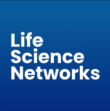The World Health Organization (WHO) is a specialized agency of the United Nations responsible for global public health. It was established on April 7, 1948, and is headquartered in Geneva, Switzerland. WHO’s mission is to build a better, healthier future for people all over the world by promoting health, keeping the world safe, and serving the vulnerable.
What does the World Health Organization do?
WHO works to improve the health and well-being of people around the world by addressing health inequalities, strengthening health systems, and responding to public health emergencies. The organization’s work covers a wide range of areas, including disease prevention and control, health promotion, health policy development, and health research.
WHO collaborates with countries, institutions, and organizations around the world to promote health, prevent diseases, and address health challenges such as epidemics, non-communicable diseases, and environmental health hazards. WHO also provides technical support and guidance to governments, health workers, and other partners in areas such as immunization, disease surveillance, and health emergency response.
WHO plays a critical role in setting global health standards and guidelines. It develops and promotes international health regulations, clinical guidelines, and health system frameworks that help countries improve their health systems and provide better health care to their citizens. WHO also leads efforts to combat emerging health threats, such as the COVID-19 pandemic, by providing guidance and technical support to countries and coordinating the global response.
WHO’s importance to the pharmaceutical industry
The pharmaceutical industry is an important partner for WHO in achieving its goal of improving global health. WHO works with the industry to promote access to essential medicines and vaccines, regulate the safety and efficacy of pharmaceutical products, and address issues related to antimicrobial resistance.
WHO’s prequalification program for medicines and vaccines is a critical tool for ensuring that high-quality, safe, and effective products are available to people who need them most. The program assesses the quality, safety, and efficacy of medicines and vaccines and provides a list of prequalified products that meet WHO’s standards. This program helps to ensure that countries have access to affordable, high-quality medicines and vaccines.
In addition, WHO works to promote research and development of new medicines and vaccines for diseases that disproportionately affect people in low- and middle-income countries. WHO’s global coordination and leadership in this area can help to ensure that the pharmaceutical industry develops products that meet the needs of people in these countries.
